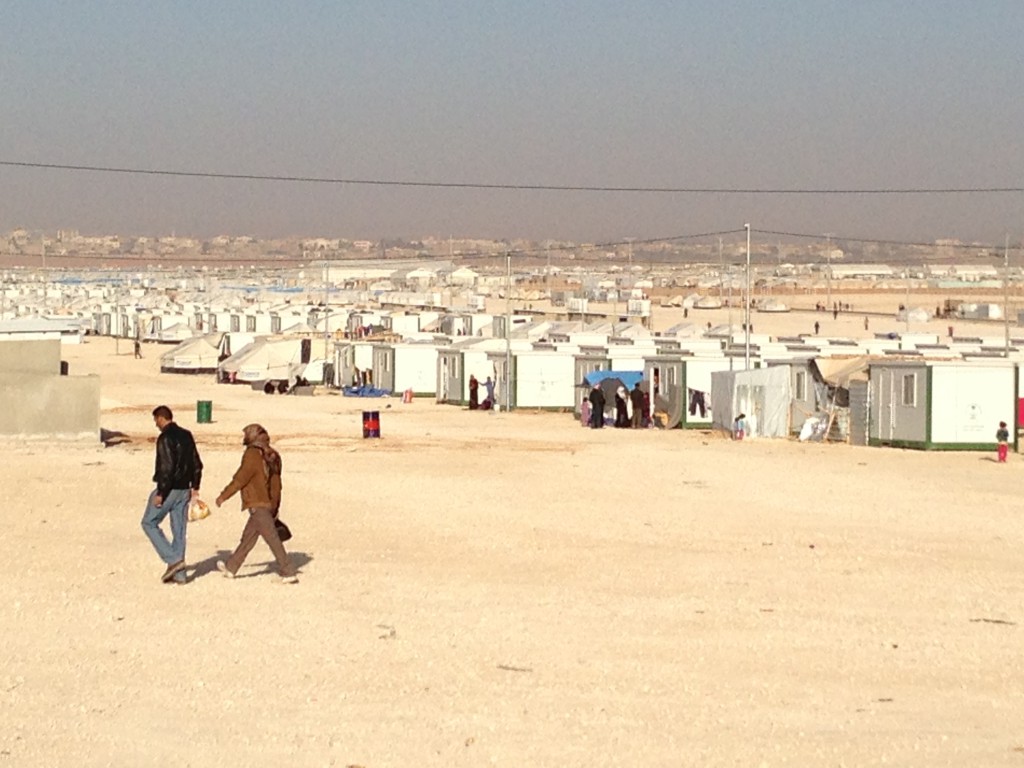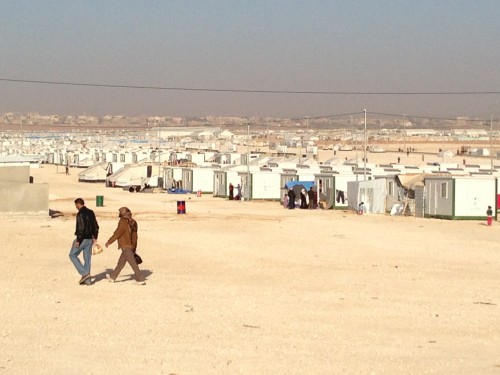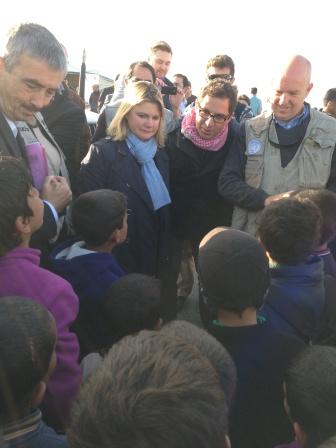30th January 2013
Syria: Stepping up to the Plate

The flow of Syrian refugees entering Jordan has now reached crisis point. What started as a trickle over 18 months ago has now become a flood. Even a few weeks ago the UN was reporting 300 – 400 new arrivals each night. Now it is 3,000 – 4,000 most nights.
These are bald figures. Like all statistics they mask the reality of multiple human tragedies and personal suffering. On our visit to Za’atari this week we met a woman from Homs who had spent two months making her way south with her young family until she reached Jordan; she has no news of the rest of her family.

We met new arrivals who had left their villages near Dera’a just over the border, walking through the night and dodging patrols by the Syrian army. In all these cases, they told of their towns and villages being attacked by helicopters, shelled by tanks and flattened by artillery.
The result of the new flows is that Za’atari camp is like a small town. When I first visited in July last year it was a hot, dusty place with a few rows of tents and a warehouse. Now it is a huge area housing over 65,000 people with many permanent buildings, a school, hospitals and places for refugees to cook and wash.
One of the biggest changes is that the main road through the camp has become a street full of shops selling food, clothing and offering services like hairdressing, argilehs and mobile phone cards.
Private enterprise is thriving. The burden on Jordan from housing and caring for the refugees is enormous. Jordanian generosity is well-known as is the history of Jordan’s hospitality for previous refugee flows.

That is why Prime Minister David Cameron visited last October and the International Development Secretary Justine Greening visited last week.
Ms Greening did not only visit Za’atari, she also went to Mafraq to see a UK-funded project implemented by the UNICEF and UNHCR to improve the water supply. This visit demonstrates that international donors are not focussed solely on Za’atari but also recognise the burden on Jordanian society where many refugees are living in the community.
What is the solution?
The best answer is the removal of Bashar Al-Assad and a transition to a new democratic, pluralistic government. That is our political objective.
But we also need an answer to the humanitarian crisis. So far the UK has committed $140 million to helping Syrians, much of it to support the refugees in Jordan.
More needs to be done. This week the UN Secretary General Ban Ki- Moon is hosting an international conference of donors to try to secure more money for Syrian refugees. All donors need to step up to the plate and commit themselves to long-term funding of the human consequences of Assad’s brutality.
Dear Peter, this is the 1st. time at all when I ‘m feeling that whatever I ‘m gonna write to you in my comment – it could be misunderstood , could be misleaded. So I had just 2 possibilities :
1st.: Leave it. 2nd.: Do and risk it. Just write that this time it ‘s really hard to find words about this human-catastrophe, this near genozid and human -disaster of which we all are eye-witnesses.And it ś happening NOW in Syria and according to your words in Jordan too. I really had tears in my eyes by reading about this “woman from Homs”, spending 2 months by making her way down South to Jordan. I only can hope that she is safe now. Your report also teached of how ridiculous some of my own “problems” are. I.e.: ” What shall I wear on this day with isolated snow-showers ?” To conclude : Is there any kind of chance to support the work of Mrs. Justine Greening ( RESPECT!) in re of this UK- Funded project – assisted by UNICEF and UNHCR ? We, the British Empire Study Group in Stuttgart want to make a donation. Bw., Ingo-Steven Wais, Stuttgart/Wuerttemberg